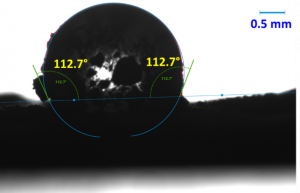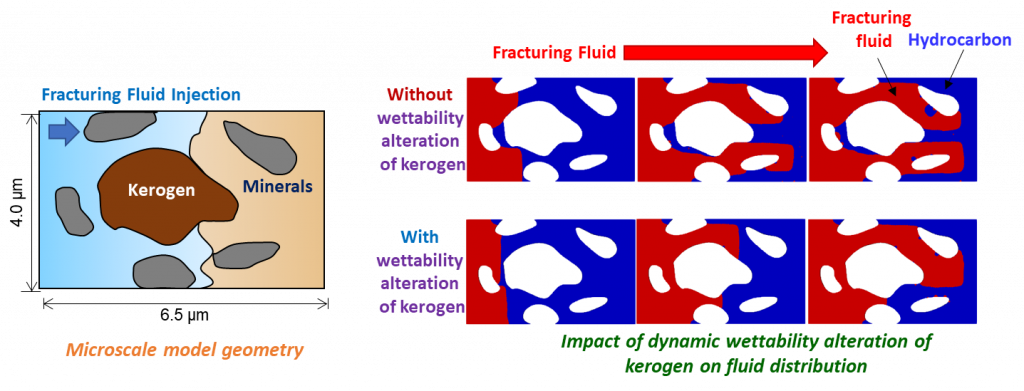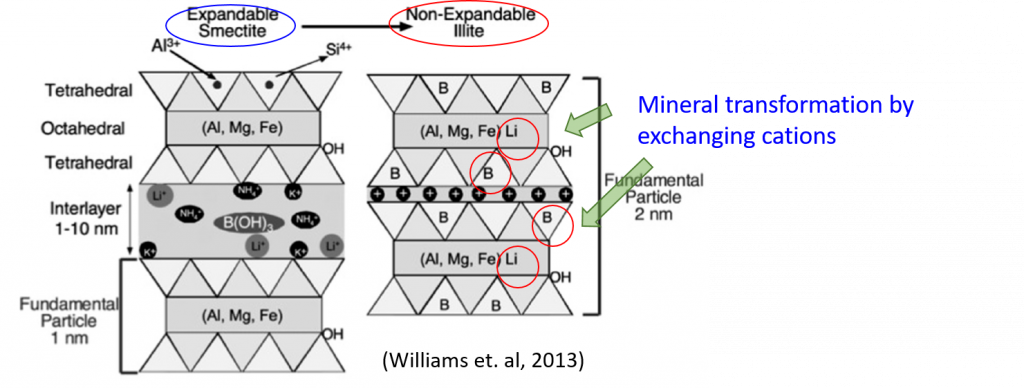Synergizing Minority–Serving Institution Partnerships for Carbon–Negative Geologic Hydrogen Production (Co-PI, Leading institution: Stanford University, US DOE, 11/2024-2027)
The overall objective of this proposal is to cultivate the next generation of engineers and scientists, especially students from minority-serving universities, to fill the critical gaps in developing early-stage carbon-negative hydrogen production from the Earth’s abundant subsurface ultramafic rock formations. A new partnership will be established between Stanford University and two Hispanic Serving Institutions (HSIs) (Texas Tech University and University of Houston). The success of this project is envisioned to advance the achievement of a sustainable economy, more competitive workforce, and DOE’s goals of decarbonization and net-zero GHG emission technology.
CAREER: Identifying a New Source of Lithium for Sustainable and Renewable Energy Storage (PI, NSF, 06/2021-05/2027)
While water produced from organic–rich (e.g. petroleum and natural gas) source rocks has been considered wastewater, it has been recently revealed as a potential source of substantial amounts of lithium (Li). This opens new pathways to address the entire petroleum system and Li geochemical cycle. This research project develops a transformative characterization framework for Li in source rock brines, thus laying the foundation for converting source rock brines into a sustainable source of Li. This outcome will help address the urgent need to enhance and diversify the domestic supply of Li.


Mechanisms of Wettability Alteration by the Interactions between Kerogen and Hydraulic Fracturing Fluid and Its Impact on Fluid Transport in Organic–Rich Shales (PI, ACS PRF, 09/2021-08/2025)
Hydraulic fracturing fluid, which is composed of water and various kinds of organic and inorganic additives, is known to actively interact with shale and critically affect the multiphase flow behavior. Even though the interactions between hydraulic fracturing fluid and mineral components of shale have been actively researched and elucidated, only little is known about the fundamentals of interactions between fracturing fluid and kerogen and their impact on multiphase fluid transport. The goal of this research project is to determine the impact of interactions between kerogen and hydraulic fracturing fluid on the alteration of kerogen wettability affecting multiphase fluid transport in organic–rich shales.


Analysis of Geochemical Factors Affecting Bentonite Swelling Pressure and Development of Prediction Model (PI, KAERI, 06/2021-12/2030)
For the safe isolation of high–level radioactive waste, stability of engineered barrier system (EBS) needs to be obtained. Buffer of EBS is composed with mixed clay bentonite, which experiences the alteration of chemical components when it is exposed to pore water heated during radioactive decay. The chemical alteration of bentonite involves the illitization of highly expandable smectite and cementation by mineral precipitation, and it threatens the stability of EBS by significantly decreasing the swelling pressure of bentonite. To secure the stability of EBS, it’s necessary to precisely predict the swelling pressure change by chemical alteration of bentonite. This research project has the objective of identifying the chemical alteration of bentonite during hydrothermal reaction, analyzing the subsequent change of swelling pressure, and developing the prediction model of swelling pressure.
